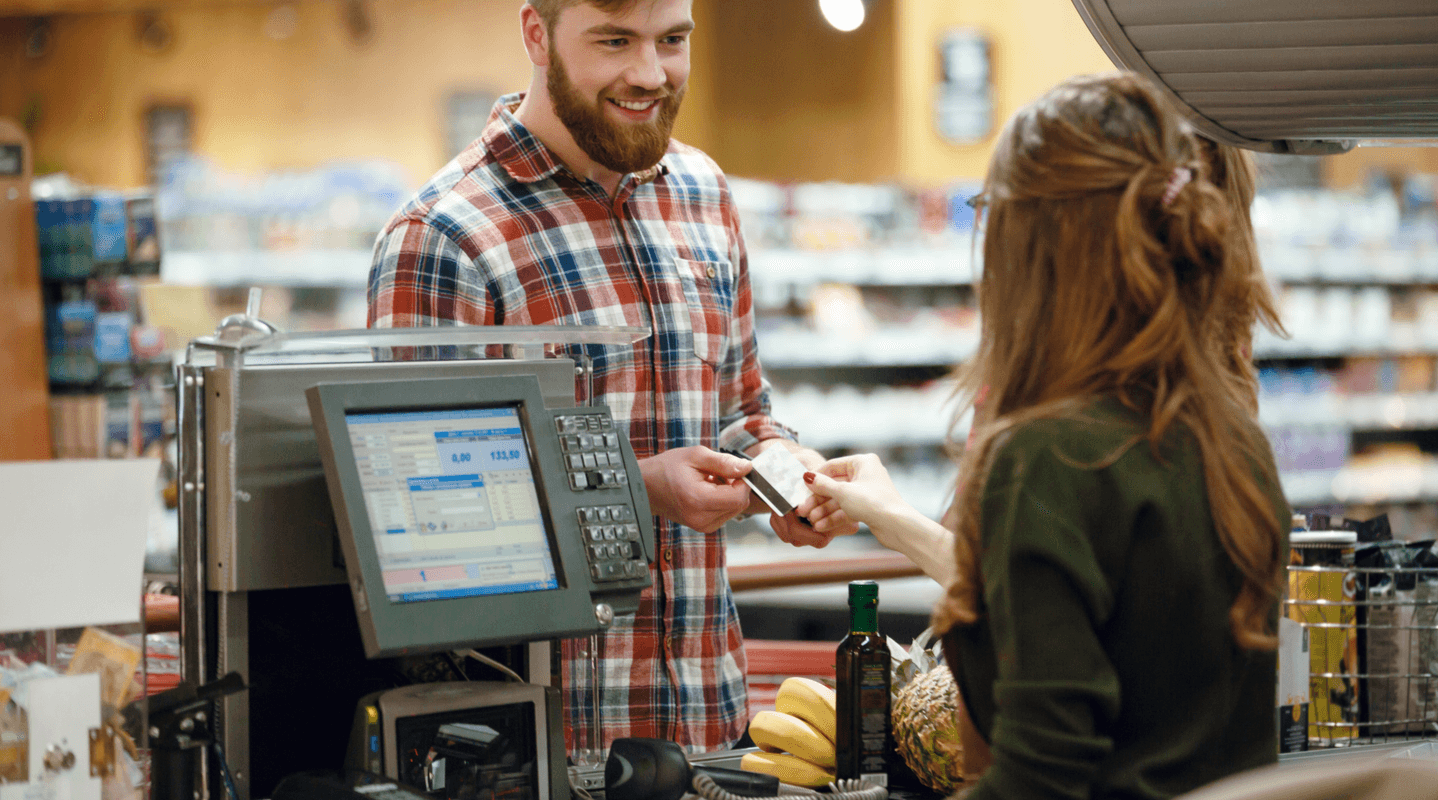MENU
Starting a Business
- Best Small Business Loans
- Best Business Internet Service
- Best Online Payroll Service
- Best Business Phone Systems
Our Top Picks
- OnPay Payroll Review
- ADP Payroll Review
- Ooma Office Review
- RingCentral Review
Our In-Depth Reviews
Finance
- Best Accounting Software
- Best Merchant Services Providers
- Best Credit Card Processors
- Best Mobile Credit Card Processors
Our Top Picks
- Clover Review
- Merchant One Review
- QuickBooks Online Review
- Xero Accounting Review
Our In-Depth Reviews
- Accounting
- Finances
- Financial Solutions
- Funding
Explore More
Human Resources
- Best Human Resources Outsourcing Services
- Best Time and Attendance Software
- Best PEO Services
- Best Business Employee Retirement Plans
Our Top Picks
- Bambee Review
- Rippling HR Software Review
- TriNet Review
- Gusto Payroll Review
Our In-Depth Reviews
- Employees
- HR Solutions
- Hiring
- Managing
Explore More
Marketing and Sales
- Best Text Message Marketing Services
- Best CRM Software
- Best Email Marketing Services
- Best Website Builders
Our Top Picks
- Textedly Review
- Salesforce Review
- EZ Texting Review
- Textline Review
Our In-Depth Reviews
Technology
- Best GPS Fleet Management Software
- Best POS Systems
- Best Employee Monitoring Software
- Best Document Management Software
Our Top Picks
- Verizon Connect Fleet GPS Review
- Zoom Review
- Samsara Review
- Zoho CRM Review
Our In-Depth Reviews
Business Basics
- 4 Simple Steps to Valuing Your Small Business
- How to Write a Business Growth Plan
- 12 Business Skills You Need to Master
- How to Start a One-Person Business
Our Top Picks
Holiday Marketing: 5 Reasons Why Customer Loyalty Programs Are Essential

Table of Contents
Around the holiday season, the top global brands strive to use marketing to evoke emotions, promote sharing and create unforgettable moments. They look for ways to differentiate themselves from their competitors, using various marketing tactics and ensuring the best holiday buying experiences to get into the minds and hearts of consumers.
While there’s no specific formula for success, brands have discovered that there are practical methods for achieving the best results through holiday loyalty program promotions. These strategies can help companies and organizations land new customers and nurture them into devoted brand advocates by maximizing pay-per-click ad spending and developing a sense of urgency to increase the value of goods or services.
Why customer loyalty programs are essential for holiday marketing
Effective loyalty programs increase customer retention, boost sales and improve buyer satisfaction. Enterprise leaders can use big data technology to personalize loyalty offers and increase the likelihood that customers will return to use their points.
In the future, blockchain technology could completely disrupt the current loyalty program paradigm. Currently, brands incur considerable expenses to store collected loyalty program data. However, blockchain may provide a solution for verifying, storing and securing brand loyalty information at a fraction of what it traditionally costs to manage these campaigns.
Here are five reasons why building brand loyalty during the holidays is smart and essential.
1. A loyalty program is a cost-effective way to build business.
Some entrepreneurs may think loyalty programs consume cash and resources without guaranteeing success. However, it actually costs more to go after new customers. Promoting brand loyalty programs among an existing customer base is more likely to provide a marked return on investment.
2. Loyalty programs yield actionable data.
Demographic data is one of the most important resources available to marketers. Detailed customer data helps marketers develop strategic plans that promote sales.
In today’s fickle buying environment, marketers must understand what promotes sales as well as what deters conversions. Loyalty programs are a form of research that helps advanced data-science marketers understand consumer buying patterns.
3. Consumers love loyalty programs.
Brands that offer loyalty rewards stand out from competitors that don’t offer similar programs. Loyalty programs send a message to consumers that a brand is interested in more than profit. This kind of reward helps brands build a mutually beneficial rapport with customers.
Businesses can effectively establish goodwill with consumers by partnering with influential local charities.
4. Loyalty programs boost brand recognition.
Loyalty programs encourage new customers to make repeat purchases faster than they would without an incentive. Additionally, these programs make existing customers feel valued, thereby improving brand sentiment and increasing the likelihood that buyers will recommend goods or services to friends, family members and associates. The more customers feel appreciated, the more likely they are to provide referrals; some may even become brand advocates.
5. Loyalty programs have successful track records.
While the results of loyalty programs vary, they’re time-tested, proven strategies. Business leaders have successfully deployed loyalty programs across a number of industries. In fact, the growth hacker movement originated from a model based on the loyalty program framework. Growth hackers, who use most of their time and resources to expand their business, have viewed customer loyalty as the easiest way to promote new business development.
Loyalty programs enable brands to create a sense of belonging and to build strong emotional relationships with customers, as well as give business leaders the opportunity to deliver experiences that improve with each engagement. These experiences build a foundation that improves with each interaction. By putting the spotlight on consumers, loyalty programs make it more appealing to support brands and share recommendations.
During the holidays, consumers are exposed to a multitude of emails, social media ads, television advertisements and other marketing channels. Savvy entrepreneurs can leverage loyalty programs to stand out among the competition during the holiday season.
Loyalty programs make shopping fun and provide the perfect opportunity to promote positive memories that will leave a lasting impression.
The best business software for loyalty programs
Developing a loyalty program requires vast data management, but these top CRM solutions and highly rated POS systems can help:
CRM software
- Salesforce CRM: This customer relationship management (CRM) software is the best option for businesses that are looking to expand. The software has multiple features that are continually improved based on the needs of evolving businesses, including comprehensive reports for CRM metrics, a loyalty management platform and a set of Sales Cloud integrations. Salesforce software starts at $25 per user per month, with a 14-day free trial. Learn more in our Salesforce CRM review.
- Monday.com: Monday’s CRM software is a great option for businesses that are looking for plenty of customization within their processes. The software provides over 200 visual dashboard templates, customizable widgets, forms, email templates and full-cycle lead management. While Monday offers a 14-day free trial for paid plans, users can also take advantage of the free plan, which includes 500MB of cloud document storage for up to two users. Learn more in our Monday CRM review.
- Zoho: Zoho’s software offers an easy-to-use solution for those looking to improve their customer loyalty programs. Starting at $14 per user per month, Zoho’s CRM software is affordable and comes with a closely mirrored mobile app that offers conversational AI and enhanced reporting capabilities — including remote access to analytics, visual dashboards and sales insights — to accelerate sales. Learn more in our Zoho CRM review.
- Keap: While Keap’s CRM software is more costly, at $129 per user per month, it can be used right out of the box without any setup. It offers 10GB of cloud storage, along with various automation templates and advanced workflows that use drag-and-drop builders to fit your business’s needs. With Keap, businesses can set up trigger workflows that automatically reach out to customers with automated reminders and notifications, as well as customized and updated deals based on certain conditions, such as a customer’s birthday or a holiday. Learn more in our Keap CRM review.
POS systems
- Lightspeed: Starting at $69 per month, Lightspeed’s point-of-sale (POS) software is suited for a variety of industries, including restaurants, retail stores and golf businesses. As one of the best POS systems for retail, Lightspeed boasts a built-in CRM that’s perfect for businesses that are looking to develop their customer loyalty program by allowing businesses to track customers’ purchase histories, create and edit customer profiles, and develop rewards programs and custom promotions to incentivize customers. Learn more in our Lightspeed review.
- TouchBistro: TouchBistro is highly customizable POS software that offers tons of restaurant-focused features. This system, which starts at $69 per month, is optimized for restaurants of all kinds, ranging from full-service restaurants to bars and breweries. Among TouchBistro’s wide array of features is the ability to add customer engagement products – including loyalty programs, online ordering and reservations – to encourage customers to return. Learn more in our TouchBistro review.
- GoDaddy: GoDaddy’s POS system is perfect for e-commerce businesses, as it offers some unique features, including website builder templates and customer domain connections starting at $6.99 a month. Along with traditional loyalty offerings – such as coupons, gift cards and online sales tracking – GoDaddy offers abandoned-cart recovery, email marketing and list segmentation to encourage customers to return. Learn more in our GoDaddy POS review.
- Square: As one of the leading companies in the POS industry, Square provides excellent customer loyalty opportunities for retail, restaurants and small businesses through its free, one-stop-shop service. Square offers customer loyalty program features, including the ability to create digital punch cards and develop a rewards program, as an add-on to expand a business’s POS system based on its individual needs. Learn more in our Square review.
Ryan Ayers contributed to the reporting and writing in this article.













